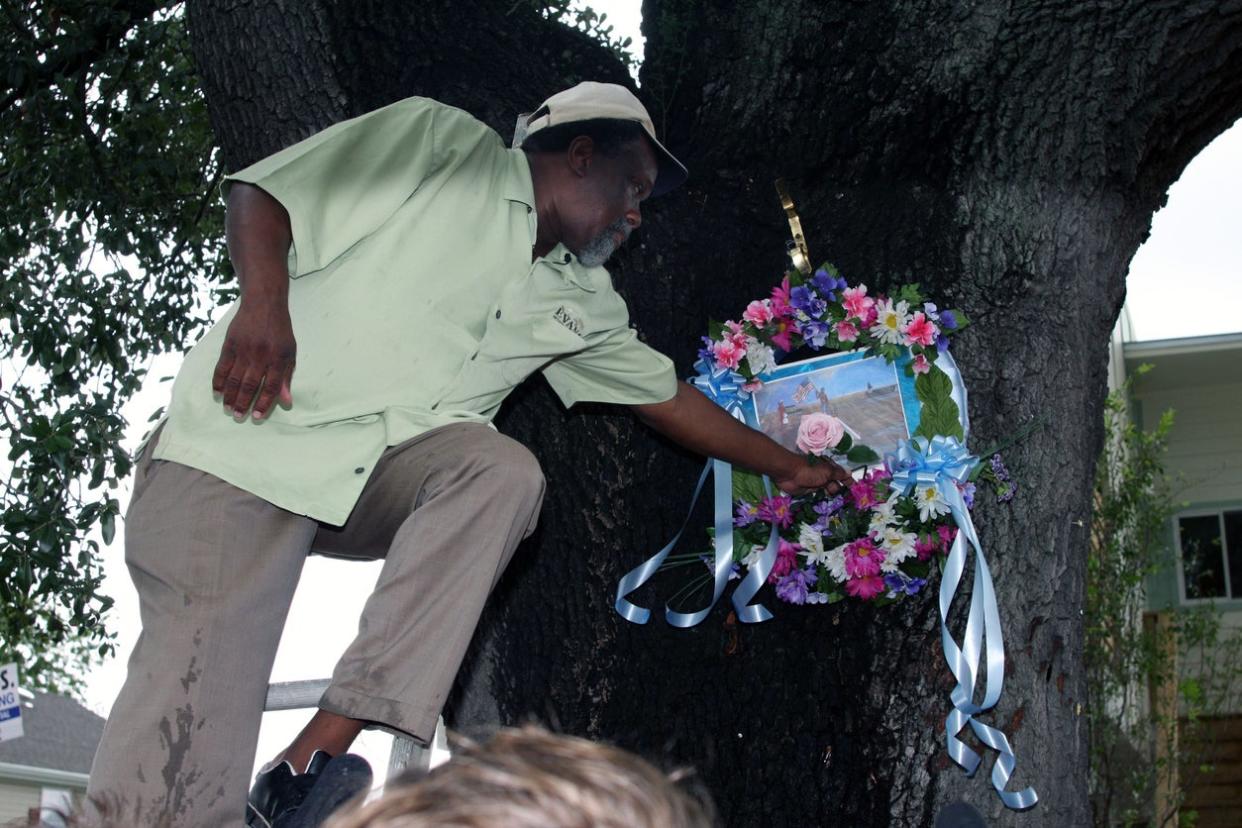Atlantic hurricane season already record-breaking — and minority communities disproportionately at risk

This year’s Atlantic hurricane season has already barrelled into the record books as the first time that three storms large enough to be named have arrived this early in the year.
Hurricane season only officially started on 1 June, but so far Tropical Storm Arthur has had an impact on North Carolina and Tropical Storm Bertha made landfall down the coast in Charleston, SC. The latest, Tropical Storm Cristobal, is threatening the Louisiana coastline with high winds, storm surges and widespread flooding this weekend.
While the quick succession of three named storms is a first (the third of 2019, Tropical Storm Chantal, did not materialise until 20 August), what’s not new is who will suffer the most. Hurricanes, and other extreme weather events, disproportionately affect poor residents and communities of colour.
Despite this fact, a study released today by watchdog, Media Matters, found that in the past three years of hurricane TV coverage by the major networks, there was no mention of the specific risks to marginalised communities.
Researchers looked at coverage of seven hurricanes and one tropical storm from 2017 to 2019 and found that none of the 669 evening news segments on NBC, CBS and ABC explicitly discussed the outsized impact on low-income communities or communities of colour.
Only PBS News Hour addressed the issue, in nine out of 233 total segments. Although it was a small portion of coverage, it did tell the stories “through the voice and perspective of those most affected” the study noted.
A PBS NewsHour segment in September 2017, following Hurricane Harvey, focused on the unique challenges the storm posed to undocumented families in Texas, which included fear of raids by Immigration and Customs Enforcement and the inability to qualify for disaster aid.
After Hurricane Florence, a segment aired in January 2018, about the devastation of New Bern, North Carolina, where low-income, black residents in a city housing project struggled to cope with pre-existing challenges that were exacerbated by the storm.
The researchers noted that storms were rarely covered as evidence of “climate-fuelled events” that are “unfairly distributed among poor communities and communities of colour” who have less resources to evacuate storms or rebuild afterwards.
The study drew a direct link between the coronavirus pandemic, which has killed black and Latino people in the US at higher rates than whites, and the climate crisis.
“This ongoing silence has dire implications, as vulnerable communities will likely still be grappling with Covid-19 during a potentially active hurricane season,” researchers wrote.
The intense hurricane conditions expected in 2020 may be affected by a La Nina. The ocean-atmosphere phenomenon sometimes follows another, El Nino, which suppressed storm conditions in the Atlantic last year.
Rising sea surface temperatures, caused by greenhouse gas emissions, are also causing more severe hurricanes, The International Union for Conservation of Nature reported.
Coastal communities usually bear the brunt of hurricanes, but it is the marginalised residents who face greater health and socio-economic impacts from homes located in low-lying areas and with decrepit infrastructure.
Hurricane Katrina, which hit the Gulf Coast in 2005, was the costliest storm in US history. An estimated 1,800 people died but the true death toll is unknown because many people were unaccounted for. And the devastation wreaked was not felt equally.
A 2005 study found that in Orleans Parish, New Orleans, the mortality rate among blacks was 1.7 to 4 times higher than that among whites for all people over the age of 18.
Black homeowners in the Louisiana city were more than three times as likely to have been flooded as white homeowners, TalkPoverty, reported in 2016.
This had little to do with choice: Decades of discriminatory lending practices meant that when black residents came to buy, properties on higher ground had been occupied by whites.
Nearly one in three black residents did not returned to the city after Katrina.
Minority and poor communities disproportionately bear the brunt of pollution and climate change overall.
Some 68 per cent of black people live within 30 miles of a coal-fired power plant despite being 13 per cent of the population, according to GreenAmerica.org, compared to 56 per cent of white people, making them more likely to feel the health impacts of pollution including breathing issues and heart conditions. More than a third of Latinos, who make up 17 per cent of the US population, also live within a 30-mile radius.
“There is no climate justice without a racial analysis,” said Tamara Toles O’Laughlin, North America director, of climate organisation, 350.org, which this week voiced its solidarity with those protesting the killing of a black man, George Floyd, by a white police officer.
“Decades of environmental justice activism has shown that communities facing racist violence and over-policing are also overrun by fossil fuel extraction, pollution, and every manner of related health disparities. The truth is that the status quo is killing us and so we have no reason to support ‘business as usual’.”
Juan Declet-Baretto, Climate Vulnerability Social Scientist, with the Union of Concerned Scientists told Grist that when the media does not cover communities of colour, its creates a “huge blindspot” in people’s perception and can affect how policies are made.
“It sends a message that there are some people in society that we collectively deem that they are not important, that it is not worth saving their lives,” he said.
Read more
Trump threatens George Floyd protesters in DC with ‘vicious dogs’
Minneapolis volunteers organise food supplies as protests close stores
Black Lives Matter protesters stage marches around the world

 Yahoo News
Yahoo News 
